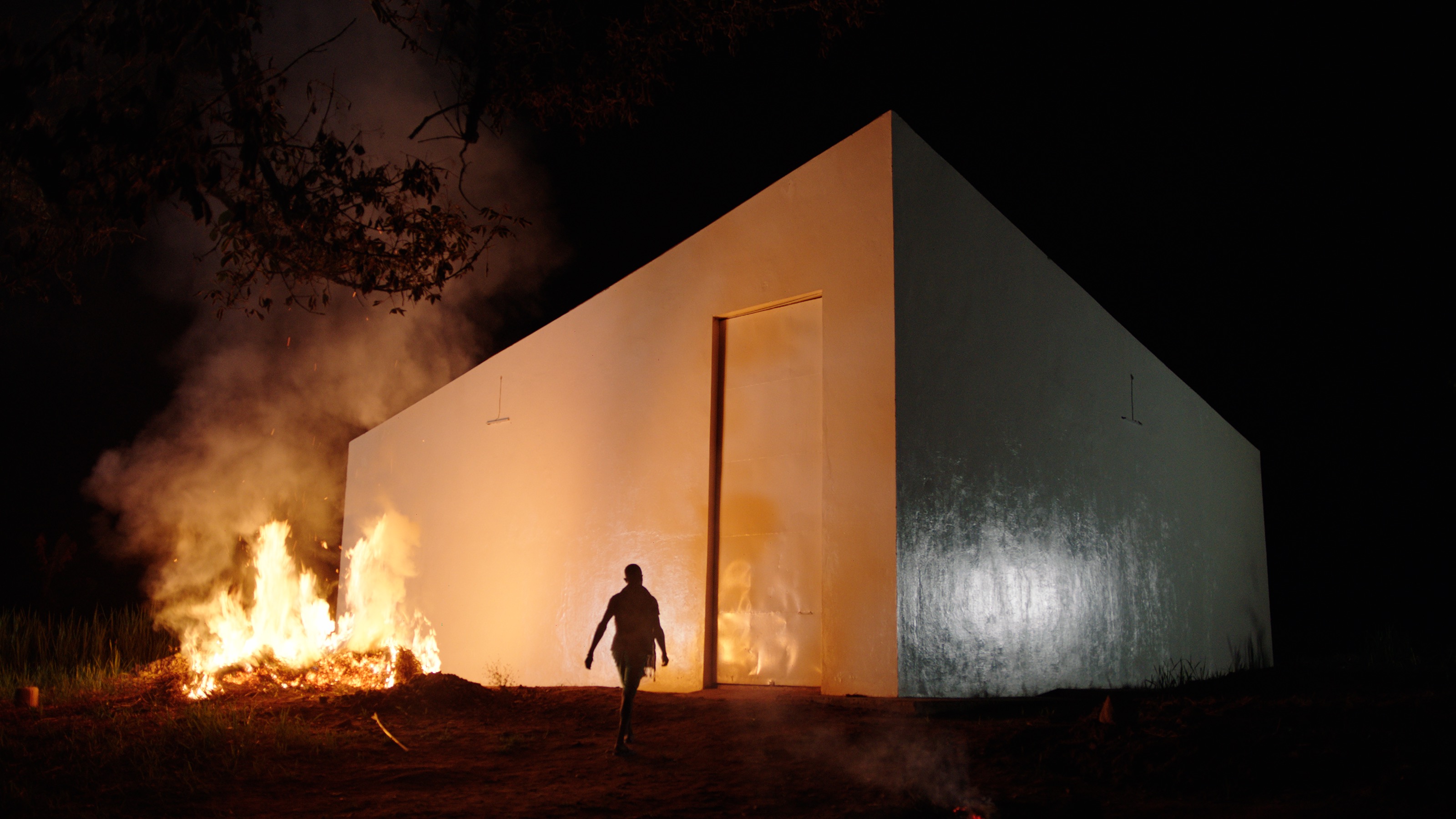Film White Cube premiered in Lusanga, DR Congo and IDFA, Amsterdam competition
November 2020

Congolese plantation workers set a new precedent: in White Cube, a new feature-length documentary film, they successfully co-opt the concept of the ‘white cube’ to buy back their land from international corporations.
The film will premiere in Lusanga, Democratic Republic of Congo and in the international feature film competition at the IDFA film festival in Amsterdam, The Netherlands this November, before touring globally.
“Land or art. If I would have to choose, I would choose both. But if I really have to choose only one, I would choose the land. Where can I put my chair and start making art, if I do not own the land?” — Matthieu Kilapi Kasiama, CATPC.
In a time in which the debt held by Western museums whom have been financed by forced labour on confiscated land – the plantation – becomes ever more apparent, this documentary film testifies to an unlikely, new beginning.
White Cube follows the Cercle d'Art des Travailleurs de Plantation Congolaise (CATPC), a plantation workers’ cooperative based on a former Unilever plantation in Lusanga, Democratic Republic of Congo. The film documents their success in ending the destructive system of monoculture on their lands. CATPC was formed in 2014 together with renowned environmental activist René Ngongo, the founder of Greenpeace Congo. CATPC members make sculptures from river mud; the sculptures are 3D scanned and then reproduced in cocoa and palm oil in Amsterdam (the world’s largest cocoa port) before being exhibited at top galleries and museums worldwide. With the income generated from the sales of their art the workers are able to buy back the land that had been confiscated and taken from them by Unilever. So far they have bought 85 hectares of land, which they are transforming back into rich and diverse, ecological and egalitarian gardens: the post-plantation.
Early triumph came in 2017 with their first solo exhibition in New York’s SculptureCenter, an exhibition that was hailed by the New York Times as the ‘best art of the year’. The same year CATPC inaugurated their own white cube: a OMA-designed museum built on their newly purchased land, which functions to bring capital, visibility and legitimacy to Lusanga. Soon after the premiere of the White Cube film, Lusanga’s White Cube museumwill begin its exhibition program with a solo exhibition by Ghanian artist Ibrahim Mahama.
From the board-rooms of Unilever to the exhausted plantations in Congo; from a failed solo attempt by Dutch artist and filmmaker Renzo Martens to CATPC making the front pages of The New York Times: the film tells an unlikely story. From the profits extracted from plantations to funded museums such as Tate Modern, the Van Abbemuseum or the Ludwig Museum; from the violence of the plantation system to the aesthetics and the civility of the white cube, the film highlights a fundamental question: can museums ever hope to be inclusive when no reparations have yet been paid to the plantation workers who financed – and in some cases continue to finance – the very foundations of these institutions?
White Cube marks a new beginning: how the concept of the white cube – with all the privileges it stands for — can be repurposed by plantation workers as a vehicle to buy back their land and begin a new inclusive and egalitarian world. As CATPC member Mathieu Kasiama said: "We must not stay in one place. We must spread out. We must take back all four corners of The Congo."
This is a film by Renzo Martens in collaboration with CATPC.